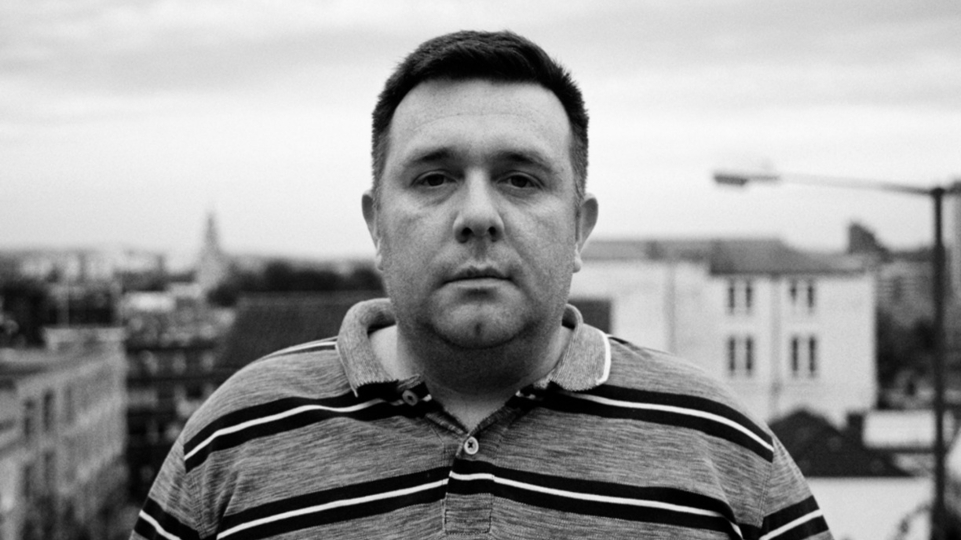
Radio Silence: the movement to diversify the UK radio industry
Award-winning radio presenter and proponent of the diversity-focused Radio Silence movement, Kay-Lee Golding, explores the lack of Black representation in mainstream UK radio
In 2020, you would think that radio would be diverse and full of opportunities. But unfortunately, you would be wrong. The UK radio industry really lacks diversity, despite how much Black music is played across radio stations. According to PPL data published in 2019, Pharrell Williams’ ‘Happy’ was the most played song of the decade. As Amanda Seales says, you cannot enjoy the rhythm and ignore the blues.
The Black Lives Matter movement has finally been pushed to the forefront of the news, with hundreds of thousands of people standing together to fight for equality across the world. Many brands and companies have participated in the movement, but my question to them is: Does your company reflect your social media posts?
We have seen many UK national radio stations post videos of on-air moments talking about the Black Lives Matter movement, or participate in Blackout Tuesday. But this is not enough. It is not enough for them to post to their audience, but ignore what’s happening within their own buildings. We need real change within the radio workplace. We need to talk about the UK radio industry.
The Radio Silence movement was set up by two radio producers, Pulama Kaufman and Sara Hebil-Motie. As soon as I found out about it, I had to get involved and help share the message. Being a mixed-heritage female radio presenter and DJ, I have been extremely emotionally affected by the lack of diversity in the radio industry. It hurts me to think that the industry that I love so much does not return that love or support to the Black community.
“The Radio Silence movement was a chance for me to raise awareness to the lack of diversity in the UK radio industry, in an effort to encourage stations to make important changes,” Kaufman says of her reasons behind starting the movement. “As a white female, I hear voices and see people that look like me in the radio industry left, right and centre, but there is a large part of the UK population who are not represented in the same radio that is meant to be speaking for the country. For me, this lack of representation was the biggest driver for me to call out these outlets and demand transparency, accountability and action!”
For Hebil-Motie, the reason was even more personal: “The Radio Silence movement was important to me as I come from an immigrant family from Morocco. I knew, going into the radio industry, of the everyday struggles that come with choosing a career path in the media. However, for BIPOC, getting into the radio industry comes with a myriad of other disadvantages stacked against them.
“To get your foot into the radio industry,” she continues, “you need to be able to afford to undertake unpaid work, live in London, or know someone in a position of hiring power. As I am white-passing, I knew that I could use my privilege to help those who come from an ethnic background facing these challenges disproportionately.”
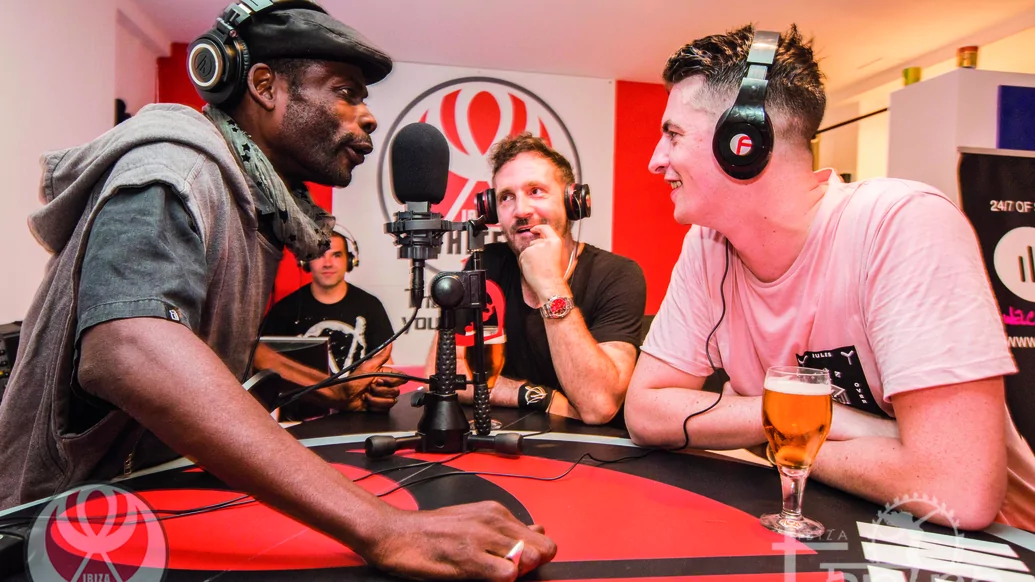
"As a POC presenter myself, I feel extremely underrepresented, and it has made me question whether I will ever be able to present on national radio full time" — Kay-Lee Golding
The Radio Silence movement has published a range of statistics in regards to diversity within the UK radio industry, but what’s particularly important in this research is that it covers production staff as well as presenters. According to Ofcom’s 2019 Diversity and equal opportunities in radio report, the total percentage of staff in minority ethnic groups at the UK’s three main radio broadcasters was low: just 9% at BBC Radio, 8% at Global, and 3% at Bauer. The national workforce average was 12%, while the 2011 census put the non-white population of the UK at 14%.
Radio Silence also found that many mainstream national stations have a lack of Black and non-Black POC presenters: LBC, Radio X, Capital FM, Magic FM, and Absolute Radio only have one POC presenter each on their schedules. Even worse are Talkradio and Virgin Radio, who have none at all. As a POC presenter myself, I feel extremely underrepresented, and it has made me question whether I will ever be able to present on national radio full time.
Unfortunately I am not the only POC presenter that feels this way. “Growing up, and even now, having the one or two Black female radio presenters at big stations to look up to is great (big up Jenny Francis, Clara Amfo, Shayna [Marie], Yinka and more), but it’s not enough,” says FEE MAK, who presents the Drivetime show on London’s Westside Radio, and was selected to cover Radio 1 shows during the Christmas programming period.
“This lack of representation kills dreams, feeds doubt and makes Black female presenters think, ‘Well, if there’s only three Black female radio presenters at that station, how the hell am I going to get there?’” she continues. “It’s such a shame because there’s so much power in our voices and stories. All we need is a platform to really embrace us for everything that we are.”
This is why it’s so important that radio stations employ a variety of presenters of different ethnicities, for young people to aspire to. When we do see Black presenters, it’s often only on specialist stations like Capital XTRA, 1Xtra or KISS Fresh. There’s an extreme lack of diversity on their parent stations. But why is this the case? Radio 1Xtra’s DJ Ace shares his thoughts: “I do think sometimes we are seen as ‘Black broadcasters’ and not broadcasters who are Black. So if you’re a Black person trying to get into radio, it’s assumed you want to be on 1Xtra or Capital XTRA. This isn’t always the case; although the music bangs, a person of colour could be more suited to speech radio, sport radio or even mainstream radio.”
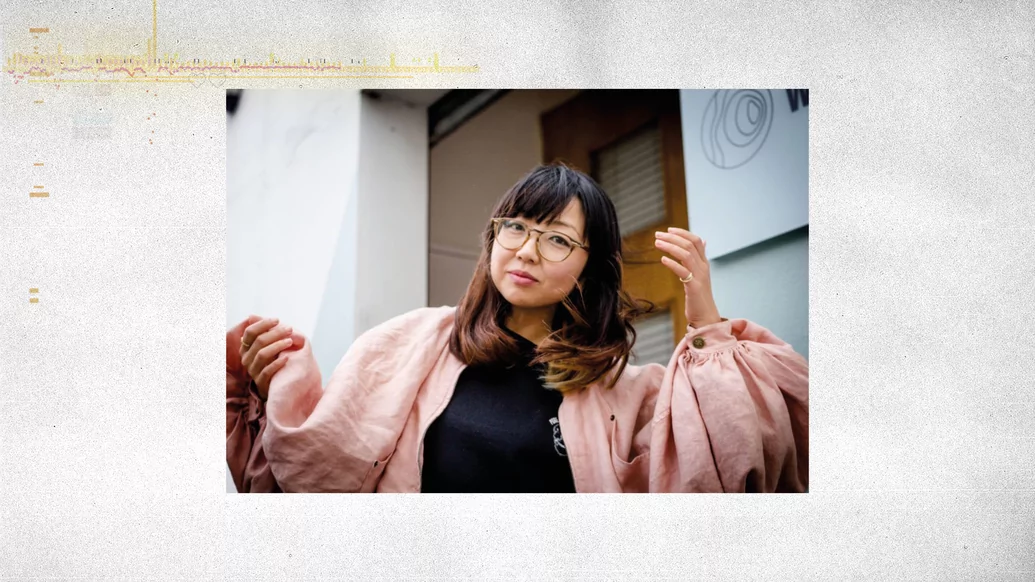

“There seems to be a love/hate relationship with my voice. Although I’ve been told I sound too ‘street’ for KISS Breakfast, I’ve also been asked to re-word scripts to help make the message sound younger and more ‘cool’" — Swarzy
Assumptions like this based on race are dangerous, and they’re not the only way Black presenters are mistreated. Swarzy, of KISS FM, is one of just two Black female presenters you can hear across the entire KISS network. “I’ve been called a ‘diva’ at work whenever I have had conversations about being paid,” she tells me. “It’s not uncommon for me to receive an email about an opportunity with all the information included — date, time, location, brief, etc. — except for the fee. The moment I follow up this email and ask about my pay, I’m laughed off and called a ‘diva’ for caring more about my money than being grateful for the opportunity. The language of ‘diva’ is damaging and made even more frustrating after discovering that other presenters escape asking about their pay, since their fee is mentioned in the first email.
“There seems to be a love/hate relationship with my voice,” she continues. “Although I’ve been told I sound too ‘street’ for KISS Breakfast, I’ve also been asked to re-word scripts to help make the message sound younger and more ‘cool’. This mixed message is confusing because where there is a desire from others for me to essentially sound more ‘white’, radio also loves my authenticity. I can’t win.”
Lack of diversity can take an emotional toll, too. “Feeling underrepresented comes with loneliness,” says Swarzy. “I feel lonely because I find myself left alone to do the work of changing attitudes and perceptions towards Black people. I can think of countless occasions where someone has said something to me, and no one around has come to my defence. And yet, whilst this is the hard truth that shouldn’t be the case in 2020, I’m glad that my experience has built my resilience. I’m proud to be the only Swarzy who looks and sounds like me at KISS.”
As Swarzy mentions, sometimes presenters can be told to be ‘less Black’, or content can be steered away from the Black community. Despite Black music dominating the airwaves, the actual content of programming often misses out broader aspects of Black culture. One station that has been particularly outspoken during the Black Lives Matter movement, however, is BBC 1Xtra. At the start of June, just days after the murder of George Floyd, DJ Ace and Seani B hosted a special show on racial injustice on the station. “It’s important to have these conversations on air because radio is powerful,” DJ Ace tells me. “It’s reach is far and impactful, and we are educating some people that have no idea what the British Black experience is. I think a lot of people will have learnt from the show we delivered.’”
With the Radio Silence movement, it was vital that we both discuss the problems and provide some solutions. We shared a second series of images on our social media called ‘The reality behind the race gap in the UK radio industry’. One of the biggest factors behind the lack of diversity in radio is the amount of unpaid work that takes place. Time after time I was told that I would have to work for free if I wanted to get into radio. When you come from a low income background, it can be very difficult to work for free when you could be supporting your family with a paid job instead. This is the case for many POC in this country.
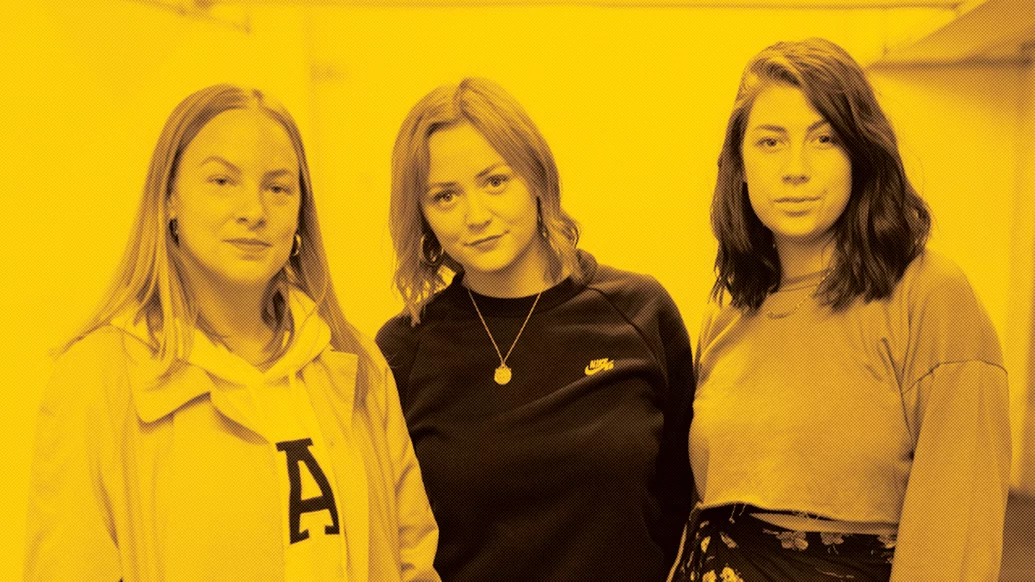
"We want to spark change, give people a platform, build their careers, make noise so they do get the attention of stations such as Radio 1, KISS and Capital. We want to make change from the ground up" — Frankie Wells
According to the Joseph Rowntree Foundation, POC have the highest rates of income poverty in the UK. Unpaid internships offer an unfair advantage for those of higher incomes, and you are more likely to come from a high income background if you are white. In the long-term, unpaid internships contribute to making wealthy students wealthier, and poor students poorer. In sharing our posts on ‘The reality behind the race gap in the UK radio industry’, we proposed that radio stations stop offering unpaid work and instead paid all internships. This opens up the training opportunities for people with lower incomes, and increases the chances of progressing to a full-time career within radio.
Many radio stations also rely on internal referrals, rather than scouting for new talent at smaller stations such as community radio. Although it may be easier and quicker to have an internal referral, this can be detrimental to bringing in a diverse range of people.
Ivor Etienne is station manager of The Beat London, one of the few Black-owned DAB and FM community radio stations in the capital. “It’s where the creative talent can be nurtured and developed, and allowed to make and learn from mistakes,” he says, when asked about the importance of community stations. “It’s where future schedulers, producers, commercial production producers and presenters can learn their trade. I believe that the commercial and public service broadcasting sector should pay a levy to help nurture this talent. The community stations take the risk but get little reward when the talent decides to move on.”
There are so many community radio stations developing new diverse talent, including Reprezent, No Signal, Westside Radio, The Beat London and Foundation FM. The latter puts diversity first and foremost in their mission statement, promising to “showcase the hottest emerging talent in the underground music scene, led by a diverse group of women, LGBTQI+ persons and talented creatives who support our values — with women at the forefront.”
Foundation FM co-founder Frankie Wells explains their focus: “To us, one of the most important things is for people to listen to Foundation FM and feel represented, to hear someone like them and say, ‘Well if they can do it, so can I.’ We want to spark change, give people a platform, build their careers, make noise so they do get the attention of stations such as Radio 1, KISS and Capital. We want to make change from the ground up.”
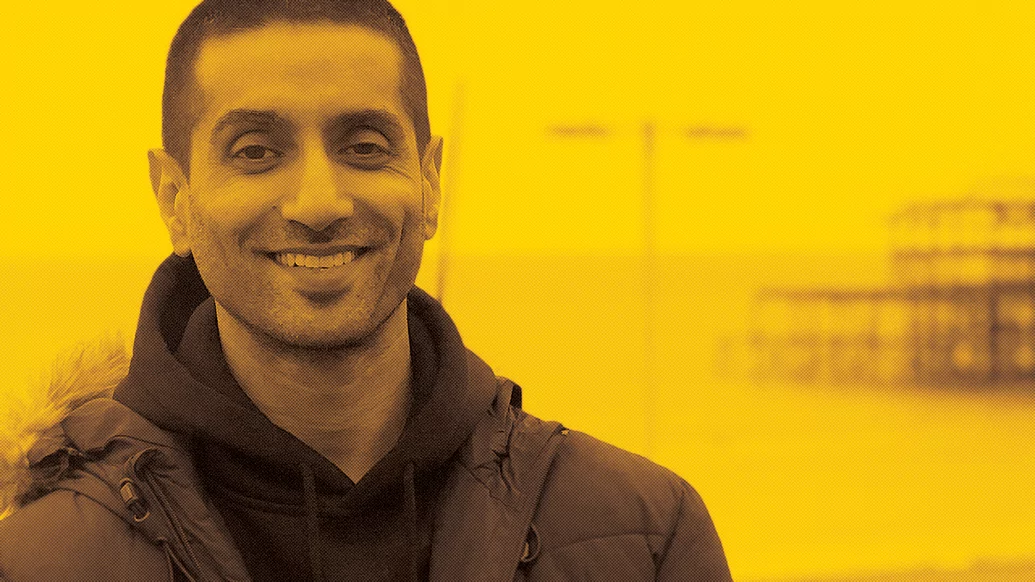

“My advice is simple: Provide opportunities for all. Embrace and represent talent from all backgrounds and all ethnicities. That has to be at the core of your radio station’s recruitment” — Sone Palda
Westside Radio also does a great job in developing diverse talent. Presenters who have come through the station include Shayna Marie (Capital XTRA), Ricky Haywood-Williams (Radio 1), and Pandora (Heart FM). Westside station manager, Sone Palda, shares his take on how to drive change in the radio industry: “My advice is simple: Provide opportunities for all. Embrace and represent talent from all backgrounds and all ethnicities. That has to be at the core of your radio station’s recruitment.” London community radio does such a great job in developing talent and diversity in radio. But if national radio stations are not going into these community stations to scout out talent, then how can the current situation change?
This is why the Radio Silence movement urges radio stations to stop relying on internal referrals. Radio Silence is not the only movement taking a stand against the lack of diversity in the radio industry. Formed in response to the lack of opportunities for minorities in broadcasting, London-based podcast production company, Broccoli Content, set up the Broccoli Equality in Audio Pact. The pact has challenged stations to action five points that will bring about long-term change in the industry:
01. Pay interns / stop using unpaid interns
02. Hire LGBTQIA+, Black people, POC and other minorities on projects not only related to their identity
03. If you are a company that releases gender pay gap reports, release your race pay gap data at the same time
04. Stop participating in panels that are not representative of the cities, towns and industries they take place in
05. Be transparent about who works for your company, as well as their role, position and permanency
Since launching the Radio Silence movement, Bauer and the BBC have signed the Broccoli Equality in Audio Pact. I would strongly encourage other radio brands to follow suit. Being someone that works in the radio industry, the lack of diversity has always upset me and demotivated me. Black people and non-Black POC have the talent and the skills, we just need the opportunities to display them. With the Black Lives Matter movement bringing about change across the world, and movements like Radio Silence and Broccoli Content putting pressure on, I really hope that change will come to UK radio, too.





